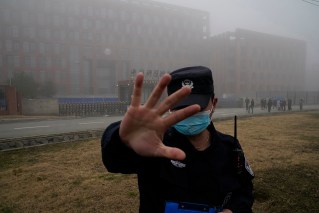Reducing steroids: A major breakthrough for people with severe asthma


Severe asthma can be controlled using biologic therapies. Photo: Getty
A landmark study has found that severe asthma can be controlled without high-dose inhaled steroids.
The study from King’s College London demonstrated that 92 per cent of patients using the biologic therapy benralizumab – a monoclonal antibody – could safely reduce inhaled steroid dose.
More than 60 per cent could stop all use.
Biologic therapies are derived from living organisms.
The problem with inhaled corticosteroids
Inhaled corticosteroids remain the gold standard, first-line therapy in the effective management of persistent asthma.
They’ve been successful in reducing illness and death from asthma, according to a 2016 review.
However, long-term use of high-dose ICS therapy “has potential to cause systemic side effects-impaired growth in children, decreased bone-mineral density, skin thinning and bruising, and cataracts”.
How does the new therapy work?
Benralizumab was originally developed as an add-on therapy for asthma.
It worked by reducing the number of inflammatory cells, called eosinophil.
These are produced in abnormal numbers in the airway of patients with severe asthma. They are critically involved in the development of asthma attacks.
Benralizumab is injected every four to eight weeks.
A game-changer?
The SHAMAL study took place across 22 sites in four countries – the UK, France, Italy and Germany.
The 208 patients were randomly assigned “to taper their high dose inhaled steroid by varying amounts over 32 weeks, followed by a 16 week maintenance period”.
Approximately 90 per cent of patients “experienced no worsening of asthma symptoms and remained free of any exacerbations throughout the 48 week study”.
Similar studies to SHAMAL will be necessary “before firm recommendations can be made regarding the safety and efficacy of reducing or eliminating high dose steroid use with other biologic therapies”.
If the findings hold up long-term, a lot of people stand to benefit.
Asthma is one of the most common respiratory diseases worldwide – affecting almost 300 million people – and around three to five per cent of these have severe asthma.
This leads to daily symptoms of breathlessness, chest tightness and coughing, along with repeated asthma attacks which require frequent hospitalisation.
What the researcher says
The SHAMAL study was led by Professor David Jackson, Professor of Respiratory Medicine at King’s College London. He said:
“Biological therapies such as benralizumab have revolutionised severe asthma care in many ways, and the results of this study show for the first time that steroid related harm can be avoided for the majority of patients using this therapy.”
The study’s results could be “transformative for severe asthma patients”. Namely by “minimising or eliminating the unpleasant, and often serious, side effects of inhaled steroids”.
Read more here about asthma and biologic treatments.








